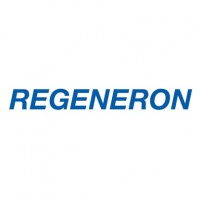Regeneron (REGN) Reports RECOVERY COVID-19 Phase 3 Trial to Evaluate REGN-COV2 Investigational Antibody Cocktail in UK

Regeneron Pharmaceuticals, Inc. (NASDAQ: REGN) and the University of Oxford today announced that RECOVERY (Randomised Evaluation of COVid-19 thERapY), one of the world's largest randomized clinical trials of potential COVID-19 treatments, will evaluate Regeneron's investigational anti-viral antibody cocktail, REGN-COV2. The Phase 3 open-label trial in patients hospitalized with COVID-19 will compare the effects of adding REGN-COV2 to the usual standard-of-care versus standard-of-care on its own.
Peter Horby, Professor of Emerging Infectious Diseases and Global Health, Nuffield Department of Medicine, University of Oxford and chief investigator of the trial, said "We have already discovered that one treatment, dexamethasone, benefits COVID-19 patients, but the death rate remains too high so we must keep searching for others. The RECOVERY trial was specifically designed so that when promising investigational drugs such as REGN-COV2 became available they can be tested quickly. We are looking forward to seeing whether REGN-COV2 is safe and effective in the context of a large-scale randomized clinical trial; this is the only way to be certain about whether it works as a treatment for COVID-19."
"The world urgently needs new medicines to combat COVID-19, and well-designed trials to evaluate new treatment options will quickly help us learn which are most effective," said George D. Yancopoulos, M.D., Ph.D., President and Chief Scientific Officer of Regeneron. "REGN-COV2 was specifically designed by Regeneron scientists to target the virus that causes COVID-19. RECOVERY will be the fourth late-stage randomized clinical trial evaluating REGN-COV2 and will add to our knowledge about how this novel antibody cocktail may help hospitalized patients in need."
REGN-COV2 is the first specifically designed COVID-19 therapy being evaluated by RECOVERY. It was selected in part based on its emerging safety profile in humans, pre-clinical data showing it could protect against viral escape mutations, and prevention and treatment studies in non-human primates showing it reduced the amount of virus and associated damage in the lungs. REGN-COV2 is currently being studied in two Phase 2/3 clinical trials for the treatment of COVID-19 and in a Phase 3 trial for the prevention of COVID-19 in household contacts of infected individuals.
Martin Landray, Professor of Medicine & Epidemiology, Nuffield Department of Population Health, University of Oxford, added, "Throughout the COVID-19 pandemic we have seen the power of randomized trials to provide rigorous assessment of potential treatments. Up to now, we have largely been studying whether existing drugs can be re-purposed to tackle this new disease, but we now have the opportunity to rigorously assess the impact of a drug specifically designed to target this coronavirus. There are good reasons to be excited about this new development – RECOVERY will provide a robust assessment of the effect of this lab-manufactured monoclonal antibody combination treatment in hospitalized patients.
"We are very grateful to the patients who have already taken part in the trial and to those who will participate in this next phase of RECOVERY. We would not be able to find the best treatments without their support and that of the thousands of hospital and research staff who are working with us."
The open-label RECOVERY trial will assess the impact of adding REGN-COV2 to the usual standard-of-care on all-cause mortality 28 days after randomization. Other endpoints include the impact on hospital stay and the need for ventilation. It is anticipated that at least 2,000 patients will be randomly allocated to receive REGN-COV2 plus usual standard-of-care, and results will be compared with at least 2,000 patients who receive standard-of-care on its own. Usual standard-of-care varies by local hospital.
The trial is being coordinated by researchers at the University of Oxford, which acts as the sponsor for the research, working with clinical teams at 176 hospital sites across the UK.
